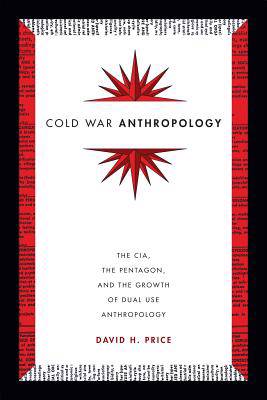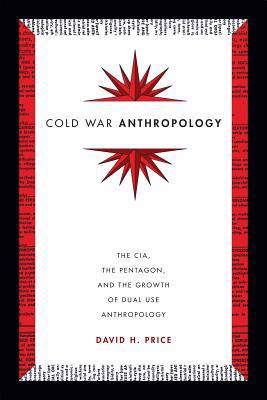
- Afhalen na 1 uur in een winkel met voorraad
- Gratis thuislevering in België vanaf € 30
- Ruim aanbod met 7 miljoen producten
- Afhalen na 1 uur in een winkel met voorraad
- Gratis thuislevering in België vanaf € 30
- Ruim aanbod met 7 miljoen producten
Zoeken
Cold War Anthropology
The CIA, the Pentagon, and the Growth of Dual Use Anthropology
David H Price
Hardcover | Engels
€ 193,45
+ 386 punten
Uitvoering
Omschrijving
In Cold War Anthropology, David H. Price offers a provocative account of the profound influence that the American security state has had on the field of anthropology since the Second World War. Using a wealth of information unearthed in CIA, FBI, and military records, he maps out the intricate connections between academia and the intelligence community and the strategic use of anthropological research to further the goals of the American military complex. The rise of area studies programs, funded both openly and covertly by government agencies, encouraged anthropologists to produce work that had intellectual value within the field while also shaping global counterinsurgency and development programs that furthered America's Cold War objectives. Ultimately, the moral issues raised by these activities prompted the American Anthropological Association to establish its first ethics code. Price concludes by comparing Cold War-era anthropology to the anthropological expertise deployed by the military in the post-9/11 era.
Specificaties
Betrokkenen
- Auteur(s):
- Uitgeverij:
Inhoud
- Aantal bladzijden:
- 488
- Taal:
- Engels
Eigenschappen
- Productcode (EAN):
- 9780822361060
- Verschijningsdatum:
- 28/03/2016
- Uitvoering:
- Hardcover
- Formaat:
- Genaaid
- Afmetingen:
- 155 mm x 234 mm
- Gewicht:
- 771 g

Alleen bij Standaard Boekhandel
+ 386 punten op je klantenkaart van Standaard Boekhandel
Beoordelingen
We publiceren alleen reviews die voldoen aan de voorwaarden voor reviews. Bekijk onze voorwaarden voor reviews.











